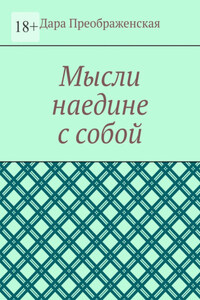Fourth Estate
An imprint of HarperCollinsPublishers Ltd. 1 London Bridge Street London SE1 9GF
www.harpercollins.co.uk
This edition published by Harper Perennial 2006
First published in Great Britain by Fourth Estate 2005
Copyright © Geraldine Brooks 2005
PS Section copyright © Louise Tucker 2006, except ‘Little Facts’ by Geraldine Brooks © Geraldine Brooks 2006
PS™ is a trademark of HarperCollinsPublishers Ltd.
Geraldine Brooks asserts the moral right to be identified as the author of this work
A catalogue record for this book is available from the British Library
All rights reserved under International and Pan-American Copyright Conventions. By payment of the required fees, you have been granted the non-exclusive, non-transferable right to access and read the text of this ebook on-screen. No part of this text may be reproduced, transmitted, downloaded, decompiled, reverse engineered, or stored in or introduced into any information storage and retrieval system, in any form or by any means, whether electronic or mechanical, now known or hereinafter invented, without the express written permission of HarperCollins ebooks
HarperCollinsPublishers has made every reasonable effort to ensure that any picture content and written content in this ebook has been included or removed in accordance with the contractual and technological constraints in operation at the time of publication
Source ISBN: 9780007165872
Ebook Edition © MARCH 2010 ISBN: 9780007369225 Version: 2017-11-01
Jo said sadly,
“We haven’t got father, and shall not have him for a long time.” She didn’t say “perhaps never,” but each silently added it, thinking of father far away, where the fighting was.
—Louisa May Alcott, Little Women
October 21, 1861
This is what I write to her: The clouds tonight embossed the sky. A dipping sun gilded and brazed each raveling edge as if the firmament were threaded through with precious filaments. I pause there to mop my aching eye, which will not stop tearing. The line I have set down is, perhaps, on the florid side of fine, but no matter: she is a gentle critic. My hand, which I note is flecked with traces of dried phlegm, has the tremor of exhaustion. Forgive my unlovely script, for an army on the march provides no tranquil place for reflection and correspondence. (I hope my dear young author is finding time amid all her many good works to make some use of my little den, and that her friendly rats will not grudge a short absence from her accustomed aerie.) And yet to sit here under the shelter of a great tree as the men make their cook fires and banter together provides a measure of peace. I write on the lap desk that you and the girls so thoughtfully provided me, and though I spilled my store of ink you need not trouble to send more, as one of the men has shown me an ingenious receipt for a serviceable substitute made from the season’s last blackberries. So am I able to send “sweet words” to you!
Do you recall the marbled endpapers in the Spenser that I used to read to you on crisp fall evenings just such as this? If so, then you, my dearest one, can see the sky as I saw it here tonight, for the colors swirled across the heavens in just such a happy profusion.
And the blood that perfused the silted eddies of the boot-stirred river also formed a design that is not unlike those fine endpapers. Or—better—like that spill of carmine ink when the impatient hand of our little artist overturned the well upon our floorboards. But these lines, of course, I do not set down. I promised her that I would write something every day, and I find myself turning to this obligation when my mind is most troubled. For it is as if she were here with me for a moment, her calming hand resting lightly upon my shoulder. Yet I am thankful that she is not here, to see what I must see, to know what I am come to know. And with this thought I exculpate my censorship: I never promised I would write the truth.
I compose a few rote words of spousal longing, and follow these with some professions of fatherly tenderness: All and each of you I have in my mind, in parlor, study, chambers, lawn; with book or with pen, or hand in hand with sister dear, or holding talk the while of father, a long way off, and wondering where he is and how he does. Know that I can never leave you quite; for while my body is far away my mind is near and my best comfort is in your affection…











